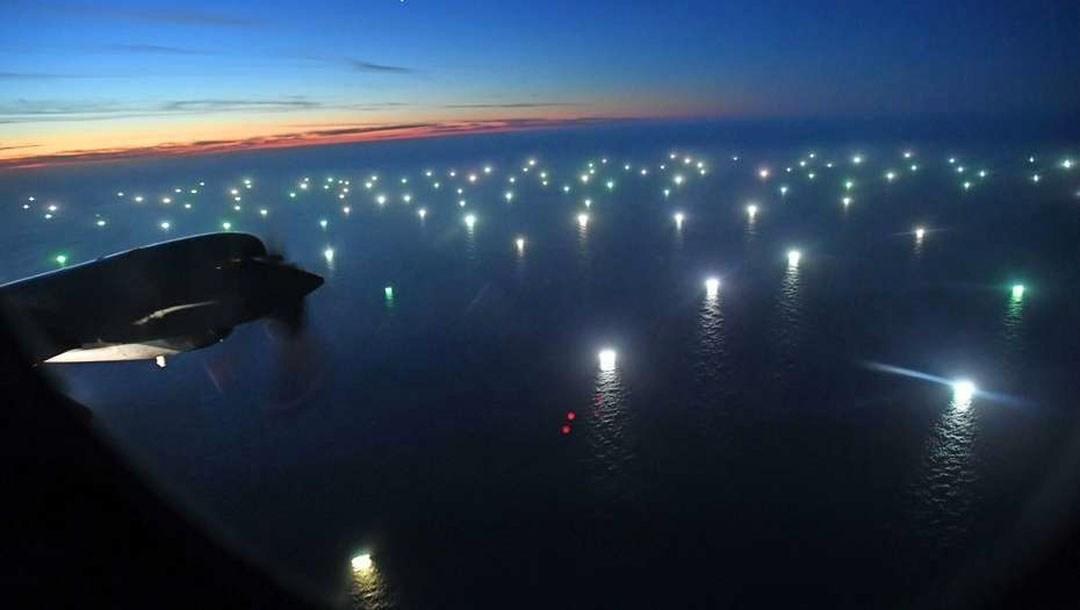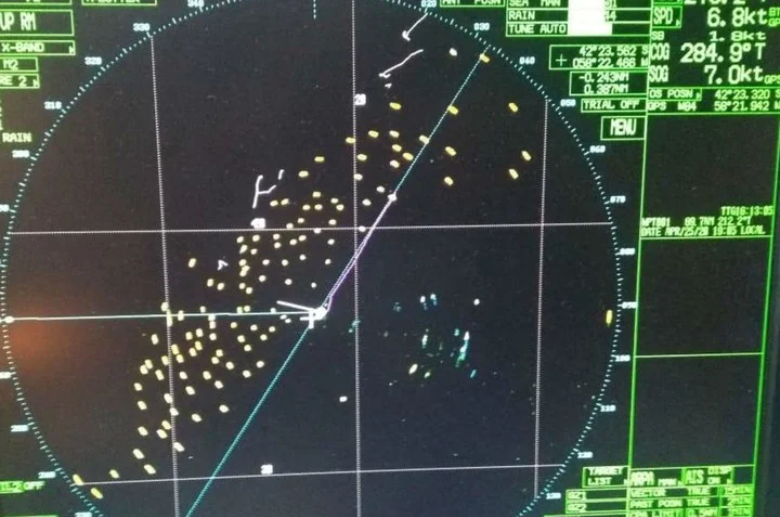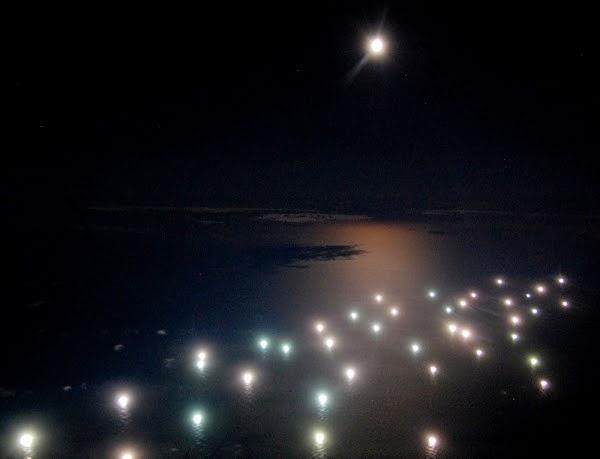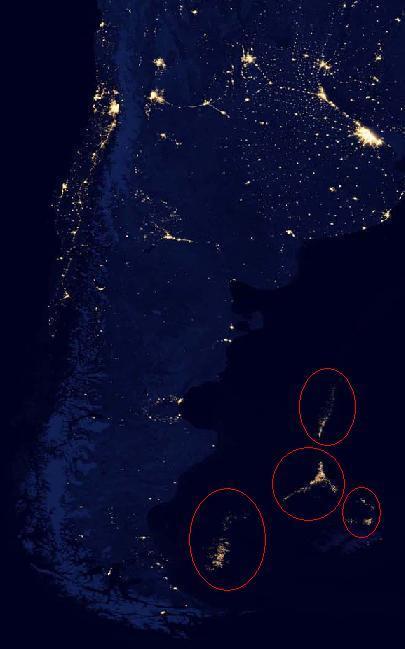The Argentine newspaper Clarín has published footage highlighting a growing problem for the government and the country’s unique surrounding ecology — illegal fishing.
Each night multiple hundreds of international fishing vessels descend on an area of ocean not far off Argentina’s coast, often crossing into the country’s Exclusive Economic Zone (EEZ) and thus illegally, in order to take advantage of waters seemingly endlessly full of squid and other fish.

New footage shows what the publication dubs “a city of foreign ships” after reporters boarded a recent Argentine military flight to do surveillance on the illegal fishing below.
The video shows ships with bright lights piercing the pitch dark ocean surface for as far as the eye can see, as if one is looking down on mysterious planet from space.
They fish often using bottom trawlers, and most are after the abundance of squid in these far southern waters, popular especially in East Asia.
Clarín describes that:
In the 200 miles there is a real city of foreign ships, estimated at between 350 and 400. They come to stay in these remote sectors of the sea for up to two years. They are generally of oriental origin. There are Chinese and Korean ships. But also Russians, Spanish, English and South Africans. They are tangoneros (those that fish only squid) and trawlers (fishing with a net).
‘City of foreign ships’ within 200 miles off Argentina’s coast lit up at night:
“These are factory ships. They freeze and process on board. Then they transfer the product to another that takes them to the ports of their countries or disembarks them in Uruguay,” the report reads.
And separate coverage, showing the ‘city of ships’ from the water’s surface:
“They are true floating freezers. And they are preying on the whole area that is a true sanctuary. Because trawlers don’t make any selections,” an environmental activist was quoted in the Spanish language report as saying.
“In this biological corridor there are orcas, whales, elephants and sea lions and dolphins. They all fall into the nets,” the spokesman added.

The vessels are commonly estimated capable of catching up to a whopping 50 tons a night, especially some of the more massive boats measuring at up to 70 meters.
“The streets are emptied by the coronavirus, but the sea fills with ships, some without a flag to prey on our resources,” a Greenpeace spokesman said ironically.
Prior satellite photo showing the clusters of foreign vessels look like cities from space:
The problem has been ongoing for years, with one publication previously featuring satellite imagery of the fishing boat clusters.
“These ships emit more light into space than almost all Argentine cities, including urban centers such as Córdoba or Rosario,” the publication said.

